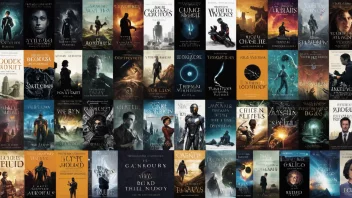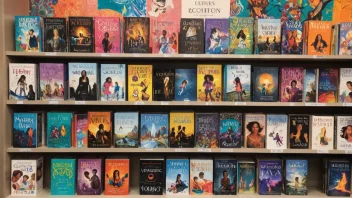In an age dominated by information overload, the need for knowledge and self-improvement has never been more pressing. Non-fiction literature serves as a beacon for individuals seeking to enhance their understanding of the world and themselves. From self-help classics to memoirs that recount extraordinary life experiences, non-fiction books provide invaluable insights that can lead to significant personal growth. This article will explore the multifaceted benefits of reading non-fiction, delving into its impact on critical thinking, emotional intelligence, and practical skills. We will also examine how non-fiction reading fosters empathy and cultural awareness, ultimately serving as a catalyst for personal transformation.
Understanding Non-Fiction
Non-fiction encompasses a vast array of genres, including biographies, memoirs, essays, journalistic works, and self-help books. Unlike fiction, which often prioritizes storytelling and character development, non-fiction aims to present facts, arguments, and real-life experiences. It invites readers to engage with the world in a way that is both informative and reflective. The diverse nature of non-fiction allows readers to explore a wide range of topics, from history and science to philosophy and psychology.
The Diversity of Non-Fiction Genres
Non-fiction can be categorized into various genres, each offering unique benefits:
- Biographies and Autobiographies: These works provide insights into the lives of notable figures, allowing readers to learn from their experiences, challenges, and triumphs.
- Self-Help: Self-help books often focus on personal development, offering strategies for improving mental health, productivity, and relationships.
- Documentaries and Essays: These genres present factual information on specific topics, encouraging critical thinking and informed discussions.
- Travel Writing: Travel narratives can broaden readers' horizons by exposing them to different cultures and perspectives.
- Science and Nature: Books in this category enhance understanding of the natural world and human behavior, often challenging preconceived notions.
The Cognitive Benefits of Non-Fiction Reading
Engaging with non-fiction literature can significantly enhance cognitive abilities. The act of reading itself stimulates brain function, while the content of non-fiction books fosters critical thinking and analytical skills.
Enhancing Critical Thinking
Non-fiction often presents complex ideas and arguments. Readers are challenged to evaluate evidence, discern biases, and form their own opinions. This process nurtures critical thinking skills, which are essential for problem-solving and decision-making in everyday life.
Expanding Knowledge and Vocabulary
Reading non-fiction exposes individuals to new concepts, terminology, and perspectives. This exposure not only broadens one’s knowledge base but also enhances vocabulary. A richer vocabulary allows for more effective communication, further aiding in personal and professional growth.
Emotional and Social Intelligence Through Non-Fiction
Beyond cognitive benefits, non-fiction reading plays a crucial role in developing emotional and social intelligence.
Fostering Empathy
Many non-fiction works, especially memoirs and biographies, provide intimate glimpses into the lives of others. By understanding different experiences, readers cultivate empathy—a critical component of emotional intelligence. Empathy enables individuals to connect with others, improving relationships and enhancing social skills.
Encouraging Self-Reflection
Non-fiction often prompts readers to reflect on their own lives and beliefs. By confronting new ideas and narratives, individuals can identify personal biases and areas for growth. This self-reflection is vital for emotional development and can lead to transformative changes in behavior and mindset.
Practical Skills Gained from Non-Fiction Reading
Non-fiction literature is not only beneficial for cognitive and emotional development but also for acquiring practical skills that can be applied in various aspects of life.
Learning New Techniques and Strategies
Self-help and instructional non-fiction books provide readers with actionable strategies for improving various aspects of their lives, such as productivity, relationships, and health. These practical skills are invaluable for personal and professional development.
Problem-Solving Skills
Many non-fiction works address real-world problems and offer solutions. By engaging with these texts, readers can learn how to approach challenges systematically, enhancing their problem-solving abilities.
The Impact of Non-Fiction on Cultural Awareness
In our increasingly globalized world, understanding diverse cultures is essential. Non-fiction literature serves as a powerful tool for fostering cultural awareness and appreciation.
Exposing Readers to Different Perspectives
Travel writing, sociology, and history books often highlight cultural nuances and societal issues that differ from one’s own experiences. This exposure broadens horizons and cultivates an appreciation for diversity, enriching the reader’s worldview.
Encouraging Global Citizenship
Non-fiction can inspire readers to become more socially conscious and engaged citizens. By learning about global issues and the interconnectedness of societies, individuals are more likely to take action and contribute positively to their communities.
Creating a Reading Habit for Personal Growth
To fully reap the benefits of non-fiction reading, it is essential to cultivate a consistent reading habit. Here are some tips to incorporate non-fiction into your daily life:
- Set Reading Goals: Establish clear and achievable reading goals, such as a certain number of pages or chapters per day.
- Join a Book Club: Engaging with others who share your interest in non-fiction can provide motivation and enhance discussion.
- Mix Genres: Explore different non-fiction genres to keep your reading experience fresh and stimulating.
- Reflect on Your Reading: Take notes or journal about your insights and thoughts as you read.
Conclusion
Reading non-fiction literature offers a wealth of benefits for personal growth, from enhancing cognitive abilities and emotional intelligence to acquiring practical skills and fostering cultural awareness. In an era where knowledge is power, engaging with non-fiction can empower individuals to navigate their lives more effectively and compassionately. As you embark on your reading journey, remember that every book has the potential to transform your perspective and inspire meaningful change. Embrace the power of non-fiction and unlock the door to personal development.






